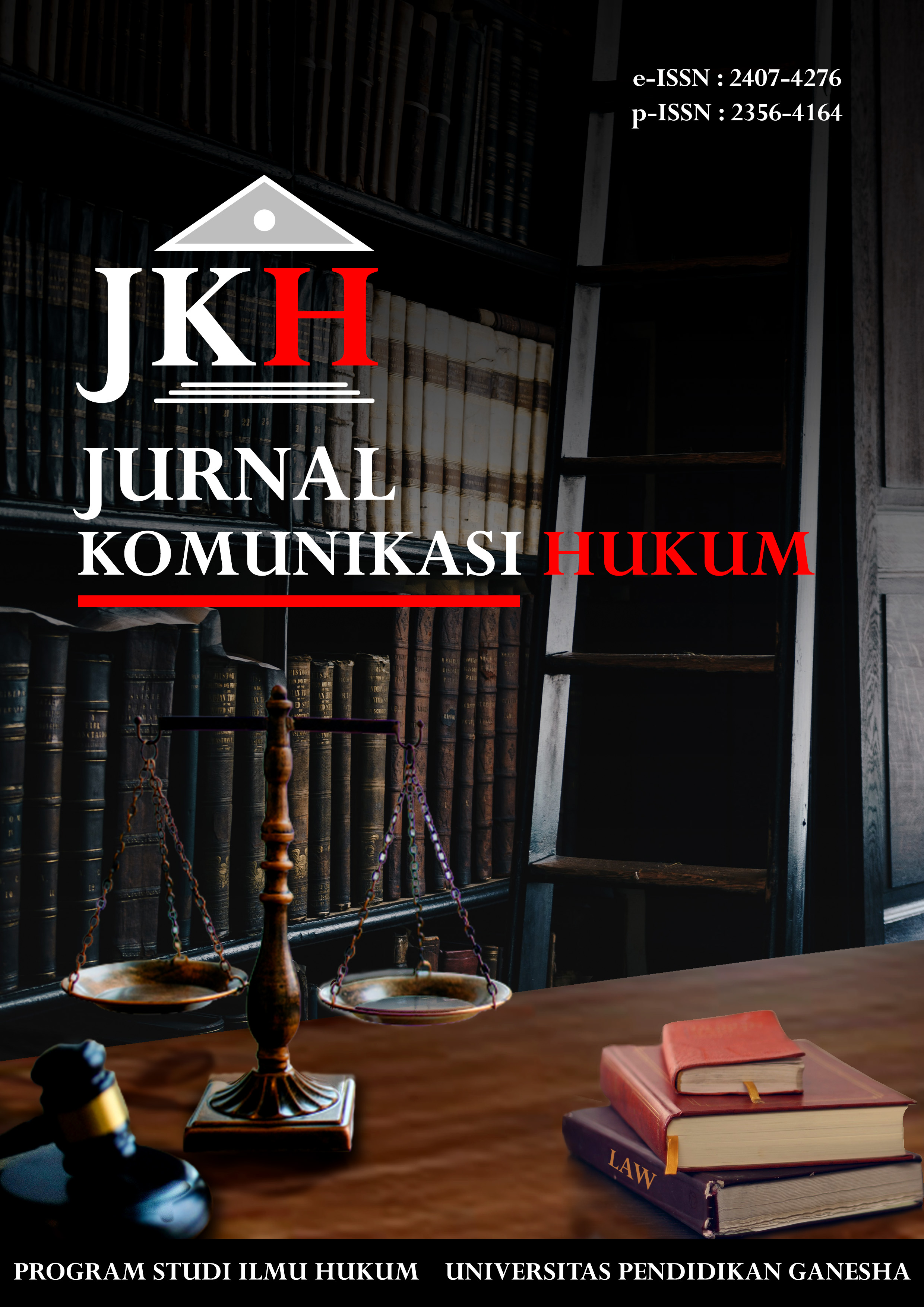Peradilan In Absentia Dalam Tindak Pidana Korupsi dan Hak Pembelaan Terdakwa dalam Perspektif HAM
DOI:
https://doi.org/10.23887/jkh.v7i2.37989Abstract
The justice of in absentia got a serious issues that concered to the pros and cons defendant of corruption criminal act, which is the good impact of in absentia implementation can advanced the justice process in recovering the costs state offered another impact to the defendant who has took an advantages of in absentia to run away abroad (DPO) and wasn’t attend the court, so that the defendant can’t be fulfilled his rights for the self- defense. The studies has made for (1) the authority of the public prosecutor in absentia implementation and (2) the criminal procedural of law mechanism (KUHAP) related by in absentia and the relevance of the Rights defidant that seen by HAM point of view in Indonesia. By using the research methods of sosio- legal, based on law comprehensive and connected with the implications for legal fact in society. The result of the study has proved that in the in absentia implementation wasn’t violated the rights of corruption defendant based on law criminal procedure (KUHAP) which is the defendant has called legally by the public prosecutor but it wasn’t attended court so that the restrictiory on civil can be imposed (Derogble Rights). In the law of human rights which based on siracusa principle in international convention of civil rights and politics that in state of emergency can be made the restictions under certain conditions. But in the restrictions of Rights it supposed to pay attention of in absentia implementation so that the processed can be done by the procedure.
Downloads
Published
How to Cite
Issue
Section
License
Authors who publish with this journal agree to the following terms:- Authors retain copyright and grant the journal right of first publication with the work simultaneously licensed under a Creative Commons Attribution License that allows others to share the work with an acknowledgement of the work's authorship and initial publication in this journal.
- Authors are able to enter into separate, additional contractual arrangements for the non-exclusive distribution of the journal's published version of the work (e.g., post it to an institutional repository or publish it in a book), with an acknowledgement of its initial publication in this journal.
- Authors are permitted and encouraged to post their work online (e.g., in institutional repositories or on their website) prior to and during the submission process, as it can lead to productive exchanges, as well as earlier and greater citation of published work (See The Effect of Open Access).
Authors who publish with this journal agree to the following terms:
- Authors retain copyright and grant the journal right of first publication, with the work [SPECIFY PERIOD OF TIME] after publication simultaneously licensed under aCreative Commons Attribution License that allows others to share the work with an acknowledgement of the work's authorship and initial publication in this journal.
- Authors are able to enter into separate, additional contractual arrangements for the non-exclusive distribution of the journal's published version of the work (e.g., post it to an institutional repository or publish it in a book), with an acknowledgement of its initial publication in this journal.
- Authors are permitted and encouraged to post their work online (e.g., in institutional repositories or on their website) prior to and during the submission process, as it can lead to productive exchanges, as well as earlier and greater citation of published work (See The Effect of Open Access).












